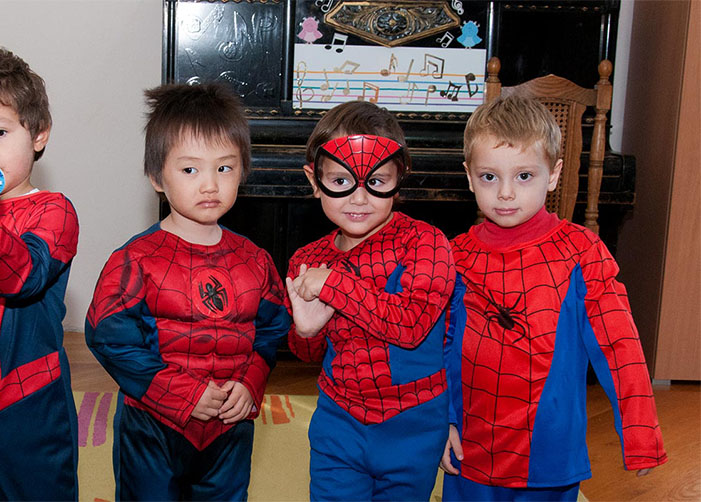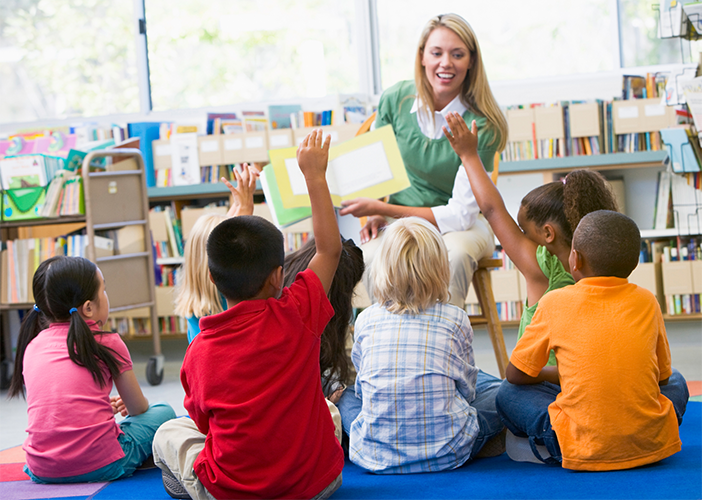[vc_row full_width=”stretch_row_content_no_spaces”][vc_column]
 Your child’s early years experience should be happy, active, exciting, fun and secure
Your child’s early years experience should be happy, active, exciting, fun and secure
About EYFS Program
Welcome to the Early Years Foundation Stage (EYFS), which is how the Government in England and early years professionals describe the time in your child’s life between birth and age 5+. Here we are concerned with children aged 3 and above.
Foundation 1 is for children turning 4+ in the current academic year.
Foundation 2 (often known as Reception) is for children turning 5+ in the current academic year.
What my child will be learning
Your child will be learning skills, acquiring new knowledge and demonstrating their understanding through 7 areas of learning and development.
Children should mostly develop the 3 prime areas first. These are:

Communication and language

Physical development
Personal social and emotional development
These prime areas are those most essential for your child’s healthy development
and future learning.

As children grow, the prime areas will help them to develop skills in four specific areas. These are:
- Literacy
- Mathematics
- Understanding the world
- Expressive arts and design
These seven areas are used to plan your child’s learning and activities. The professionals teaching and supporting your child will make sure that the activities are suited to your child’s unique needs. This is a little bit like a curriculum in primary and secondary schools, but it’s suitable for very young children, and it’s designed to be adaptable and flexible so that staff can follow your child’s unique needs and interests.
Children in the EYFS learn by playing and exploring, being active, and through creative and critical thinking, which takes place both indoors and outside.
How can I find out how my child is getting on?
It is important that you and the professionals caring for your child work together. You need to feel comfortable about exchanging information and discussing things that will benefit your child. While both teachers and assistants help your child become settled and take responsibility for your child’s care, development and learning these conversations will need to be with your child’s “key person” (their teacher). This is the person who:
- Is your main point of contact within the school
- Takes a careful note of your child’s progress, sharing this with you and giving you ideas as to how to help your child at home
You should be able to get information about your child’s development at any time and there are 2 Progress Reports per year, which contain written information about how he or she is doing.
The reports focus on the 7 areas of learning and will highlight where your child is progressing well and any where they might need some extra help or support – and how mums and dads and other family members or carers can work with the key person to help.
Apart from the learning domains we also observe and comment on your child’s approach to, and involvement in, tasks and activities under the title Effective Characteristics of Learning. For example, are they actively involved? Do they maintain interest? Are they thinking things through and making connections to past experiences?
You should be able to get information about your child’s development at any time and there are 2 Progress Reports per year, which contain written information about how he or she is doing.
When your child completes Foundation 2 (Reception)
At the end of the EYFS – in the summer term of the reception year in school – teachers complete an assessment, which is known as the EYFS Profile. This assessment is carried out by the class teacher and is based on what they, and other staff caring for your child, have observed over a period of time.
Another important part of the EYFS Profile is your knowledge about your child’s learning and development, so do let your child’s class teacher know about what your child does with you: such as how confident your child is in writing their name, reading and talking about a favourite book, speaking to people your child is not so familiar with or their understanding of numbers.
All of the information collected is used to judge how your child is doing in the 7 areas of learning and development. Finding out at this stage how your child is doing will mean that the teacher your child has in their next school year – year 1 – will know what your child really enjoys doing and does well, as well as helping them decide if your child needs a bit of extra support, what that support should be and if they are already getting it.
The school will give you a report of your child’s progress, including information from his or her EYFS Profile.









